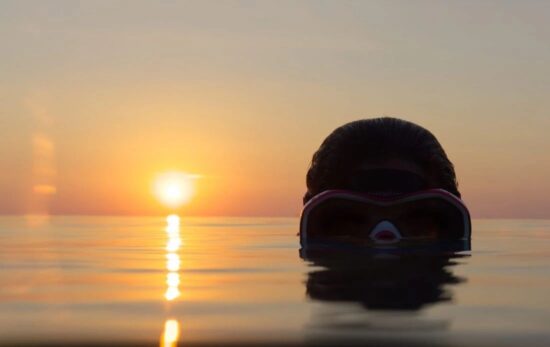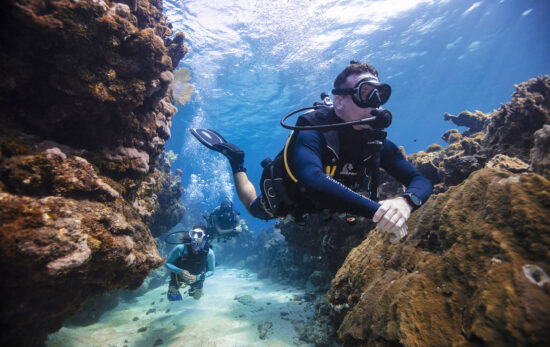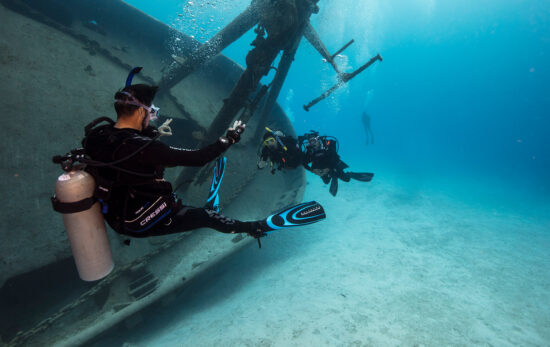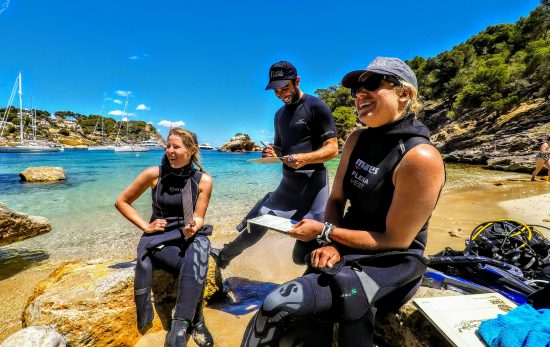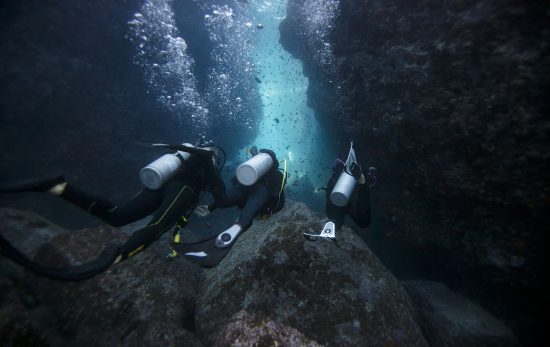There are opportunities available all over the world for those who are adventurous and passionate enough to begin a career in the diving industry. Whether you choose to become a PADI Divemaster, Scuba Instructor or Assistant Instructor or you want to work in a dive shop, corporate office or small business, there are plenty of opportunities to create a career you love based in the diving industry.
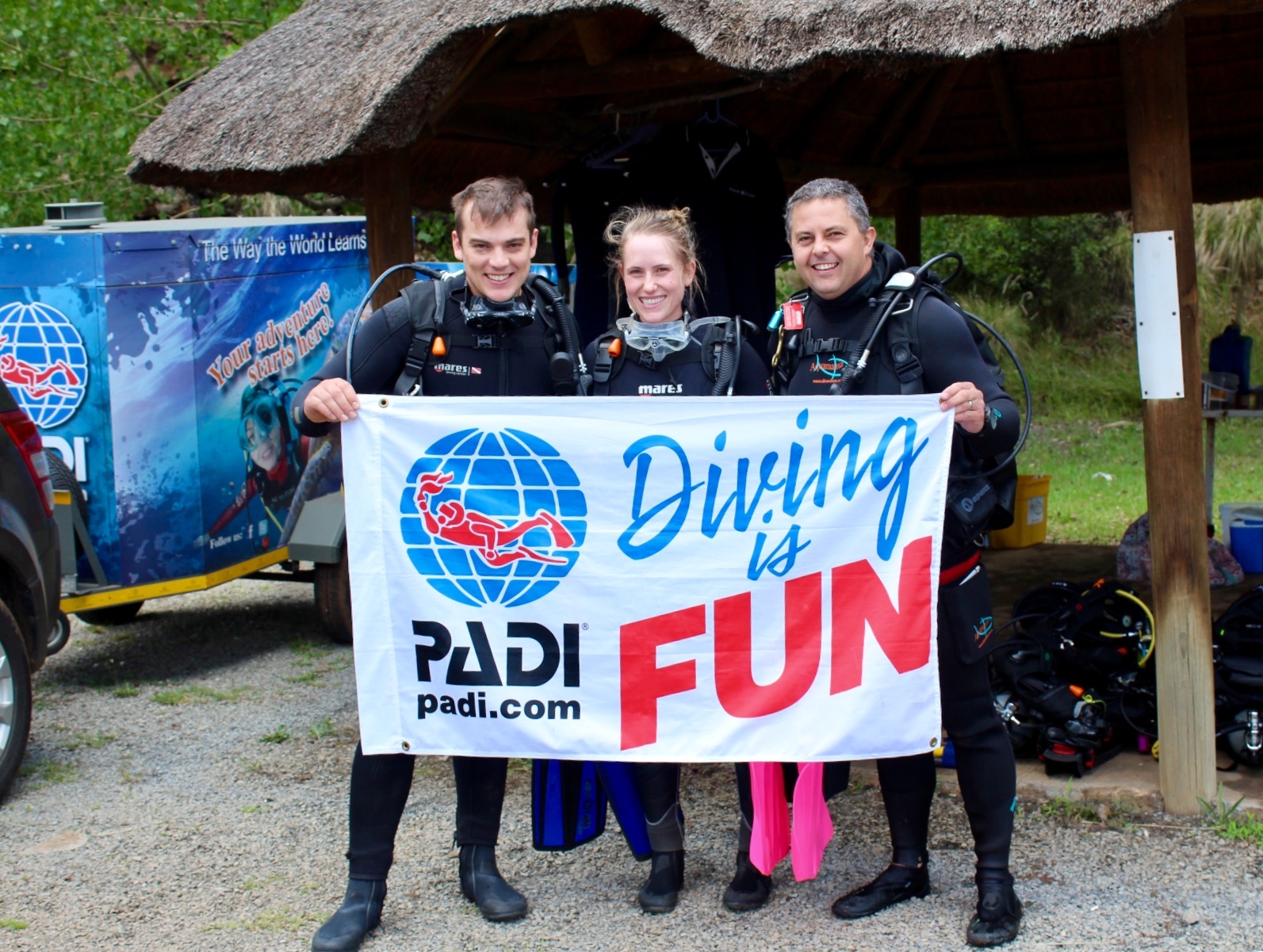
How do I get started in the diving industry?
First things first, you are going to need your Open Water Diver certification. After you are as at home in the water as you are on land, you can begin the next level of your scuba diving career. The next step will be to achieve your Advanced Open Water Diver, Emergency First Responder, and Rescue Diver certifications.
Now that you are an accomplished diver, it is time to complete your Divemaster course, joining a new, respected tier of professional divers. Once you have been awarded your Divemaster certification, you can begin your career in the scuba diving world.
What diving industry career path best suits you?
There are so many different career paths available to PADI Pros. Check them out below.
Divemaster
As a PADI Divemaster, you will lead others on dives and assist in training. To become a Divemaster, you must accomplish the prerequisite courses as described in the section above and have a significant number of logged dives (a minimum of 60 upon completion of the Divemaster course). Divemasters are highly respected, and understandably so. Once you are a Divemaster, you have joined the professional realm of scuba diving and are able to take other certified divers out on scuba diving excursions.
Instructor (PADI OWSI)
Once you complete the Instructor Development Course, you are certified to teach others how to scuba dive, sharing your passion with the world. Instructors are essential, and joining this group of exceptional teachers will place you even further into the society of scuba divers. You will spread the joy of scuba diving, teach others how to stay safe in the water, and learn new things every day as you explore the underwater world. As a PADI Open Water Scuba Instructor, you will be eligible to teach the full range of core PADI recreational courses including the PADI Divemaster program.
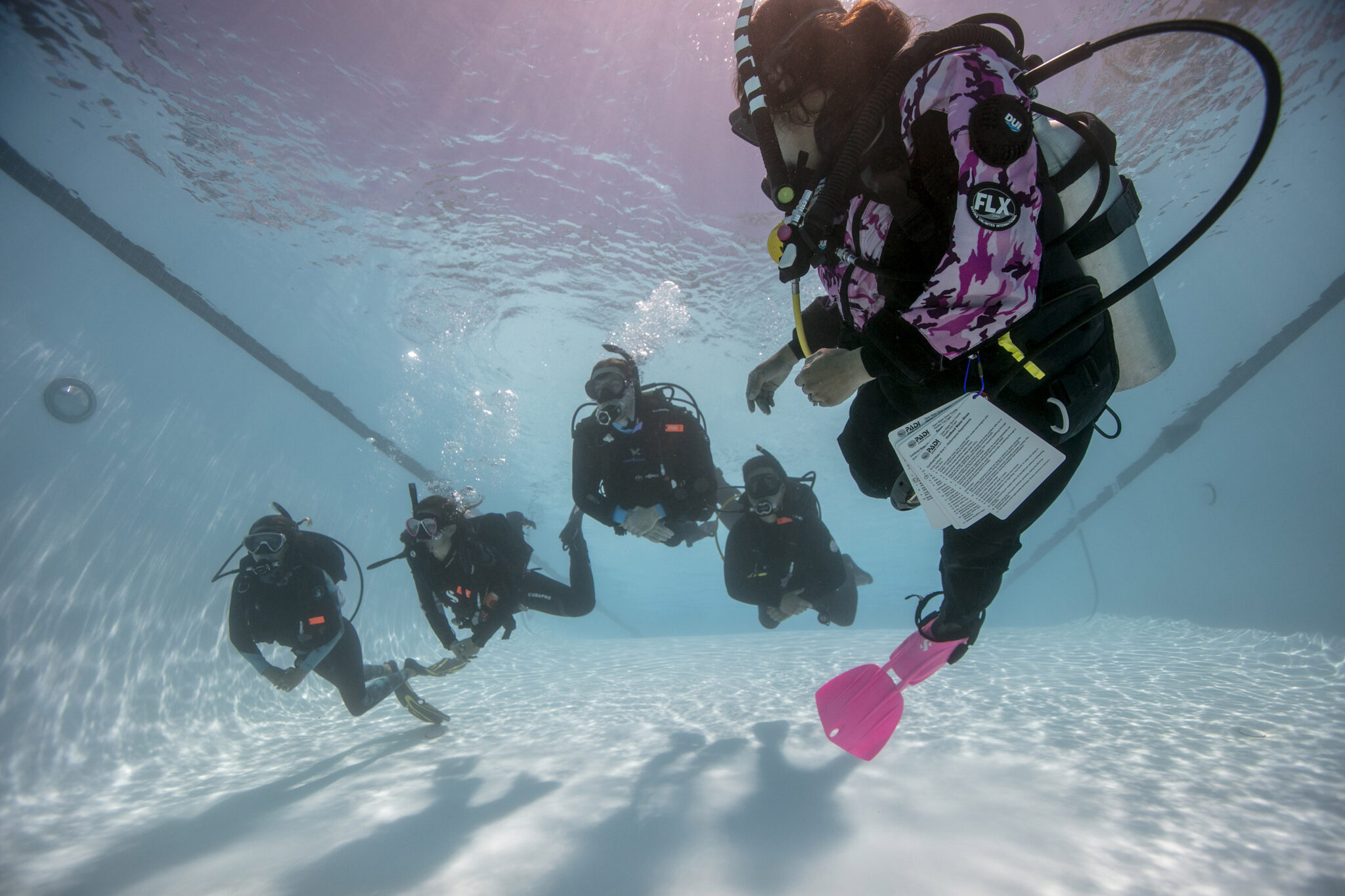
Specialty Instructor
If you are drawn to a specialty, like night diving, deep diving, or wreck diving, you can go a step further and attain Specialty Instructor ratings. Once certified, you will have the ability to teach others about your favorite pastime or about a type of diving that is relevant to where you are teaching. Once you have gained five Specialty Instructor ratings, you will be eligible to apply for the Master Scuba Diver Trainer rating (see below).
Technical Diving Instructor
As a Tec Diver, you will stretch the limits of recreational scuba diving. You will stay longer underwater, maybe dive to deeper depths and enjoy more fantastic dive sites. There are a variety of TecRec courses, in addition to the basic certification. If you would like to become a PADI TecRec Diving Instructor, you must have plenty of firsthand experience with enriched air and deep diving and complete rigorous training.
Emergency First Response Instructor
If you want to teach others how to respond to emergencies above and below the surface, becoming an Emergency First Response Instructor will be right up your alley. Not only is CPR training incredibly important while scuba diving, you never know when your first aid skills can save a life outside of diving.
Master Scuba Diver Trainer
Becoming a Master Scuba Diver Trainer means that you have reached one pinnacle of scuba diving instruction. In order to achieve this elite certification, there are certain qualifications you must achieve – namely being certified to teach five different PADI specialty courses. As a Master Scuba Diver Trainer (MSDT), you are an authority in the scuba diving world, setting the pace for all those who come after you. You will train a new era of divers, providing hundreds with the tools to explore the watery depths.
Supporting Careers in the Dive Industry
If none of the previous options interest you, there are plenty of other jobs that are necessary to the scuba diving lifestyle. Boat crews and tank fillers are essential. Individual dive shops may need people to help sell or maintain the gear. Love to be on the open oceans? Why not drive the boat and assist Divemasters during dives? You can even become a snorkeling guide!
What other skills can help divers gain employment in the industry?
Do you have other skills and certifications that you can bring to the diving industry? Some jobs require diving certifications combined with other experience and qualifications. Here are just a few examples of skills that can make you more employable in the diving industry:
Marketing
Dive centers, resorts and liveaboards all require marketing teams and marketing managers to make their products visible. If you are social media savvy, understand website design and development, or have a background in advertising, this could be the route for you.
Sales Experience
If you have a background in sales, there are plenty of diving-related sales positions available. You could be selling on the shop floor of a dive shop, selling scuba diving holidays for a travel agent, or taking reservation enquiries for a resort.
Hospitality
For those who have a background in hospitality, there is a wealth of job opportunities in resorts, on liveaboards, yachts and even onboard cruise ships. Jobs vary from management positions through to front of house or in food and beverage departments.
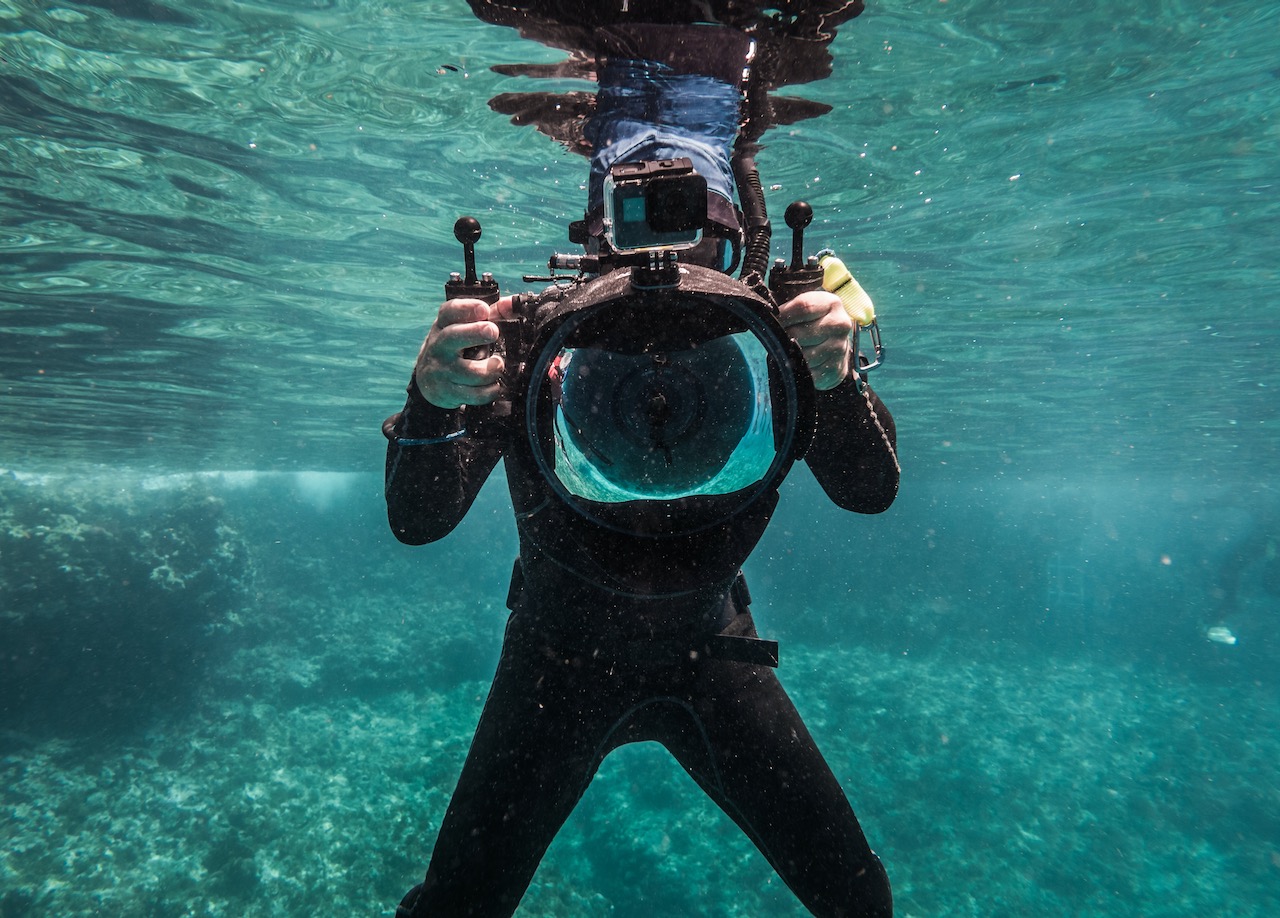
Underwater Photography
If you are handy with a camera underwater, this could be the route for you. Dive operators will often pay for professional photographs or give free stays. This could also be a sideline business if you sell your images via Shutterstock or any of the other image stock platforms. This is a great way of earning residual income.
Where will the diving industry take you?
No matter where you choose to dive, there are hundreds of opportunities to explore the depths. If you have the proper schooling you can become a marine biologist, studying the abundance of marine flora and fauna. You can, of course, specialize further within your field, focusing in on a certain creature or region of the world. Or you can work as a survey or research diver to help save our coral reefs. Most of these jobs require a Divemaster certification.
If you prefer a different path, you can become a public safety diver, having a career with law enforcement, the fire department or other emergency services. Working as a public safety diver can be a truly rewarding and exciting career.
Ready to take the next step in the diving industry? Become a PADI Pro!
Click the button below to learn more about becoming a PADI Pro!
This blog was originally written by Bridget Pearson and published on the Diviac Magazine.
